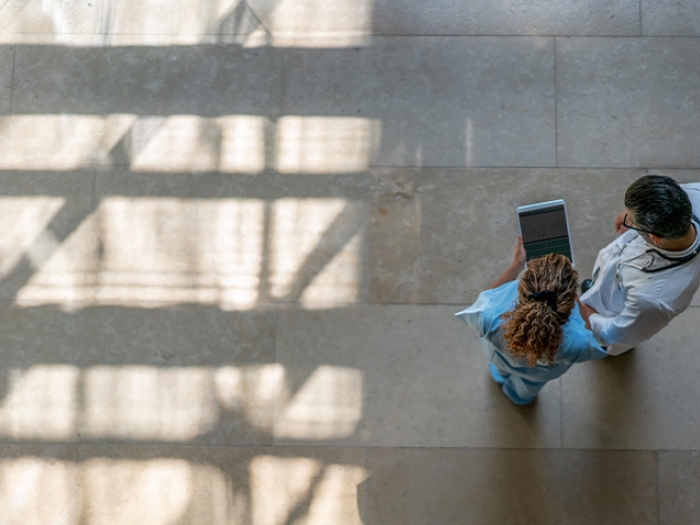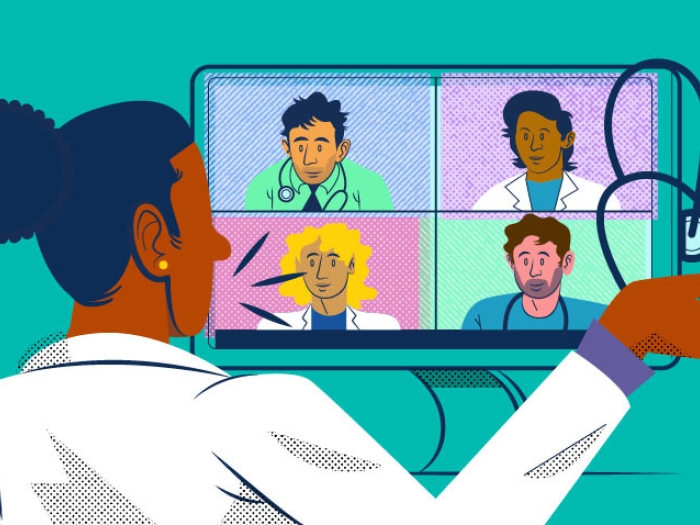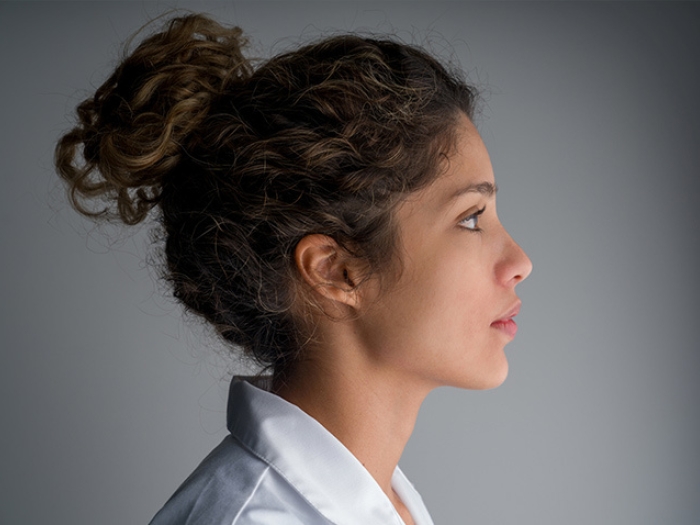If you’re applying to Ph.D. programs in the biomedical sciences, here are some helpful tips from experts.
3:00 PM
Author |

This article originally ran on 7/16/2021 and was updated on 10/11/2024.
When it comes to the pursuit of a graduate degree, aspiring scientists naturally want to know what competitive programs are looking for.
While the basics of an application traditionally include things like a candidate's academic background and letters of recommendation, "The Program in Biomedical Sciences – or PIBS – at the University of Michigan definitely takes a more holistic approach to reviewing our applications," said Bethany Moore, Ph.D., professor and former chair of Microbiology and Immunology at U-M. "We want well-rounded candidates and consider a number of factors when making our decisions."
Moore added that PIBS "is designed to offer students maximum flexibility during the first year of their graduate studies," and allows them to work with over 500 faculty members when completing their research rotations.
"At the end of their PIBS year, students can choose a permanent program as they continue on in their graduate studies," said T.J. Shannon, who provides strategic development and implementation for admissions at the U-M Office of Graduate and Postdoctoral Studies. "Through a collaborative approach that involves support staff, program directors and academic advisors, we really work with our students as they determine the best path forward for their future careers."
Moore spoke to Michigan Health about what graduate school review panels look for. Here's what she had to say.
What do you recommend prospective students consider when deciding on where to apply?
Moore: It's always a good idea to make sure that there are multiple labs within a future program that interest you because you never know what labs might be accepting students in any given year.
When considering where to go, be sure to investigate the program environments – this can mean both the institution itself, as well as the geographic location and cost of living. That way, you can make informed decisions about financial support and what your life will be like as a graduate student.
Like Podcasts? Add the Michigan Medicine News Break on iTunes, Google Podcasts or anywhere you listen to podcasts.
Things like counseling services and other realms of non-academic support can help prospective students thrive. Truly doing your research and taking advantage of the tools around you are both hugely important. Reach out to program faculty, students and alumni if a particular program looks interesting to you and you have questions.
If you're coming from a smaller, less research-intensive institution, you might want to apply for one of our summer programs to ramp up your lab experience. Because we really want our students to know what they're signing up for, we recommend six months to a year of training. Traditionally, most of our students are admitted with about one to two years of part-time lab experience.
Key elements for graduate school applications include things like research and personal statements, as well as letters of recommendation. What kind of tips can you offer students about these portions?
For research statements, we are always looking for prospective students to describe their significant research experiences. For example, what was the "big picture" question your lab was trying to answer? What smaller contributions did your lab make to an overarching goal?
We want to know if you can explain the theory and/or interpretation of the results and not simply recite its methodology.
For personal statements, we are mostly looking for the whys. Why did you decide to apply for graduate school? Why were you motivated to do so? Why did you choose this field and this school?
Sometimes, students will share personal stories in this portion of their applications, but it's important to keep in mind that we're only looking for the details that you want us to consider. For example, if you had one semester where you struggled a bit, or even just one class, but it's not reflective of your full potential, you can use your personal statement as an opportunity to explain why this may have happened or why we should disregard that grade or that semester. But you don't have to reveal intimate details of personal or family struggles.
It's always OK to have your trusted advisor(s) read your statements and provide you with feedback. Also, make sure to check for correct grammar and spelling throughout your statements.
MORE FROM THE LAB: Subscribe to our weekly newsletter
Your letters of recommendation carry a lot of weight, especially when they're from research mentors or program directors. I highly recommend seeking out at least one letter from a primary investigator – or PI – from one of your labs.
If you decide to incorporate recommendations from other trainees in the lab, I suggest asking them to combine their comments with the PI from that lab, if possible. And if you can't secure a letter from a PI, it helps to explain why.
Lastly, if you want something explained within your application that you do not feel comfortable highlighting on your own, you can always ask one of your references to explain it further if you find it appropriate.

Explore a variety of health care news & stories by visiting the Health Lab home page for more articles.

Department of Communication at Michigan Medicine
Want top health & research news weekly? Sign up for Health Lab’s newsletters today!





